Back to English Newsletter
Climate change has created drought, unseasonal rain and flooding, effecting farmers livelihoods.
Oxfam collaborates with a local organization, RACHANA, to conduct training on climate resilient agriculture techniques, to prepare villagers to have more sustainable food and livelihoods in the future.
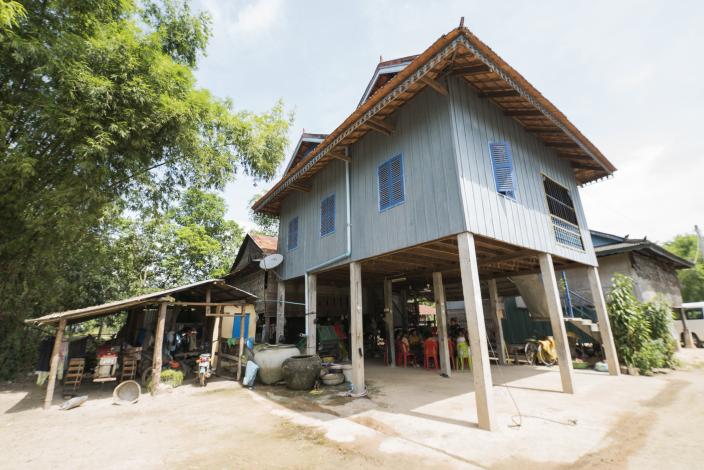
Female farmers are the main target of the project. In 2015, Oxfam worked with RACHANA and Sre Khmer to create a project to empower women in the agriculture sector called Women-led Agriculture Service Team (WLAS). Their goal is to ensure food security and to increase the incomes of families by applying climate change and disaster resilient principles and linking their products to the market. Photo: Chiy Van Dim/RACHANA
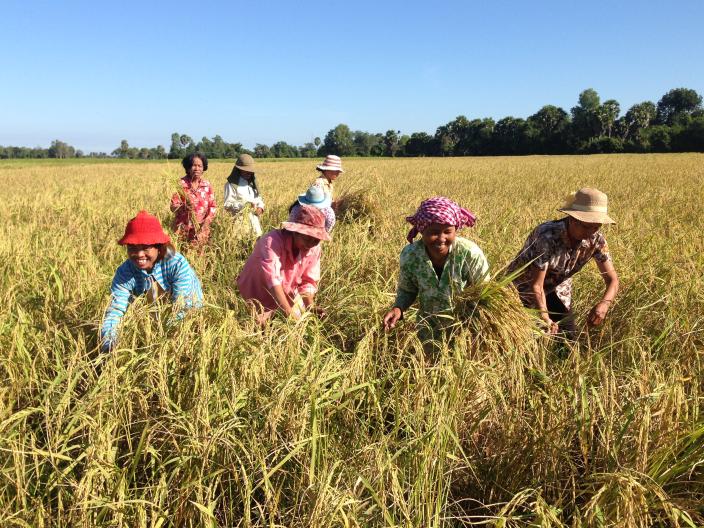
Pok Chanveasna, a member of WLAS in Treang district, Takeo Province, has participated in training sessions about rice production and chicken raising. Now, she can yield rice harvests two-three times per year and plants rice and watermelon. Pok has also learned how to vaccinate her chickens to prevent them from contracting diseases and how to adequately feed and house them.
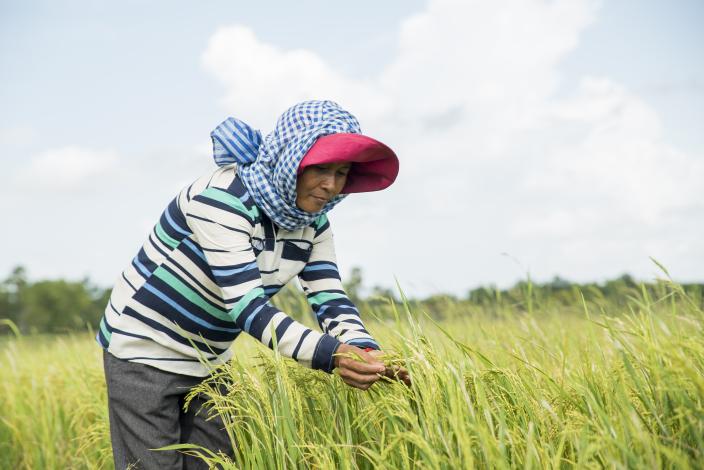
By applying what she has learned, Pok can earn around 1,000 USD per rice harvest and from selling her chickens and has now been able to afford to buy three hectares of land. Compared to her quality of life only three years ago, Pok has improved her family’s prospects remarkably. By securing her family’s food security, she can now focus on supporting her children pursue higher education.
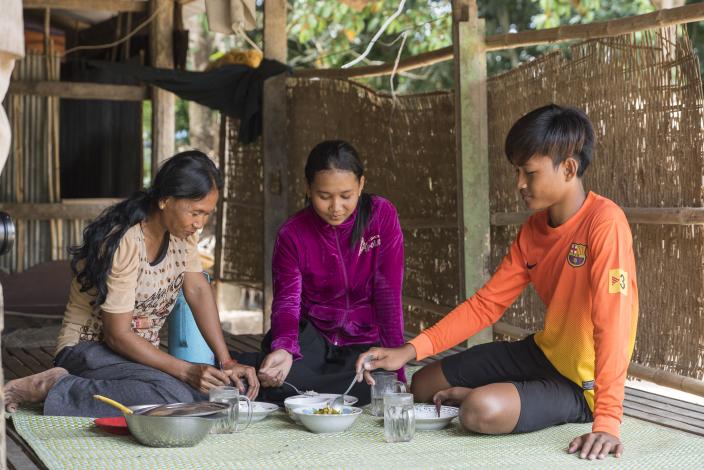
“Before joining the training, I did not know how to grow vegetables during the dry season. I could only grow vegetables one or twice per year when there is enough water.” Soy Sokhom and her husband, Lao Sovann, who have been attending Rachana’s training sessions since 2016.
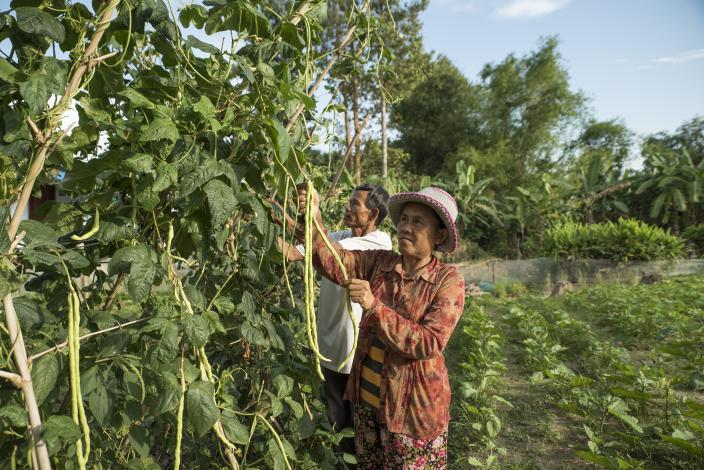
Through Rachana’s training, the couple learned how to select what kind of vegetables to grow in what kind of weather conditions. They know they can grow water spinach all year round, as it does not need much water. She now gets around 500,000 riel (roughly $125) for each crop she sells. They also raise chickens to compliment their food sources.

Cheng Sreymach and her husband Sam Sary, switched from raising pigs to chickens after being trained by Rachana. Sreymach has taught her family to step on white limestone before entering chicken cages to prevent the spread of disease.
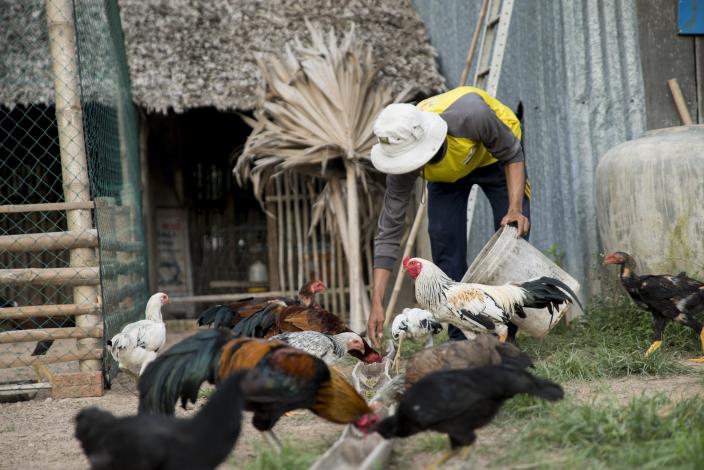
They are currently raising 60 chickens which can produce around 7 eggs-per-day. She can then sell the 50-100 chicks from those eggs, for around 250-500,000 riel (around $50-$100).
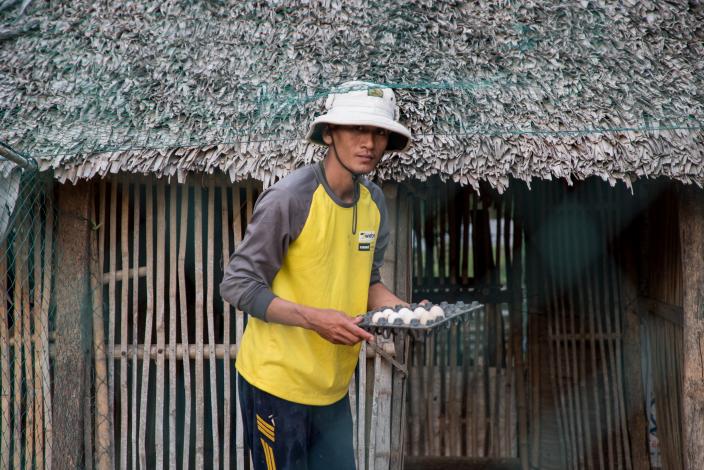
As part of the project, a savings group was organized in the village to ensure sustainable food and financial security. The villagers can stockpile funds in case of family emergencies, as well as to invest in better quality rice paddy seeds, chickens, and organic fertilizers resilient to climate change.

women-led smallholder farms, have remarkably improved thanks to the project and its innovative principles, and has allowed farmers to be more resilient to climate change and disasters.
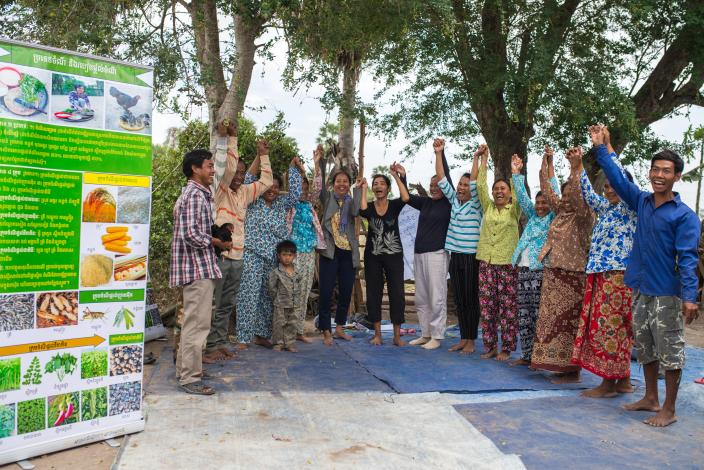
All photos by Oxfam, otherwise mentioned.
The video shows the impact to the livelihood of Ms. Puk Chanveasna after she join the Sustainable Agriculture for Climate Change Adaptation Project (SACCA) supported by Rachana and Oxfram.
